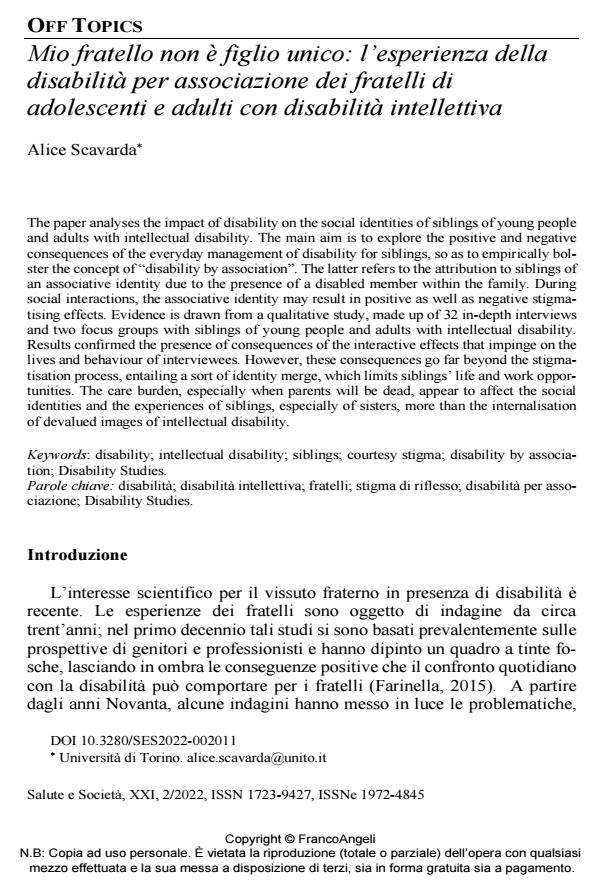Mio fratello non è figlio unico: l’esperienza della disabilità per associazione dei fratelli di adolescenti e adulti con disabilità intellettiva
Journal title SALUTE E SOCIETÀ
Author/s Alice Scavarda
Publishing Year 2022 Issue 2022/2
Language Italian Pages 16 P. 149-164 File size 99 KB
DOI 10.3280/SES2022-002011
DOI is like a bar code for intellectual property: to have more infomation
click here
Below, you can see the article first page
If you want to buy this article in PDF format, you can do it, following the instructions to buy download credits

FrancoAngeli is member of Publishers International Linking Association, Inc (PILA), a not-for-profit association which run the CrossRef service enabling links to and from online scholarly content.
The paper analyses the impact of disability on the social identities of siblings of young people and adults with intellectual disability. The main aim is to explore the positive and negative consequences of the everyday management of disability for siblings, so as to empirically bolster the concept of "disability by association". The latter refers to the attribution to siblings of an associative identity due to the presence of a disabled member within the family. During social interactions, the associative identity may result in positive as well as negative stigmatising ef-fects. Evidence is drawn from a qualitative study, made up of 32 in-depth interviews and two focus groups with siblings of young people and adults with intellectual disability. Results con-firmed the presence of consequences of the interactive effects that impinge on the lives and behaviour of interviewees. However, these consequences go far beyond the stigmatisation process, entailing a sort of identity merge, which limits siblings’ life and work opportunities. The care burden, especially when parents will be dead, appear to affect the social identities and the experiences of siblings, especially of sisters, more than the internalisation of devalued im-ages of intellectual disability.
Keywords: disability; intellectual disability; siblings; courtesy stigma; disability by association; Disability Studies.
Alice Scavarda, Mio fratello non è figlio unico: l’esperienza della disabilità per associazione dei fratelli di adolescenti e adulti con disabilità intellettiva in "SALUTE E SOCIETÀ" 2/2022, pp 149-164, DOI: 10.3280/SES2022-002011